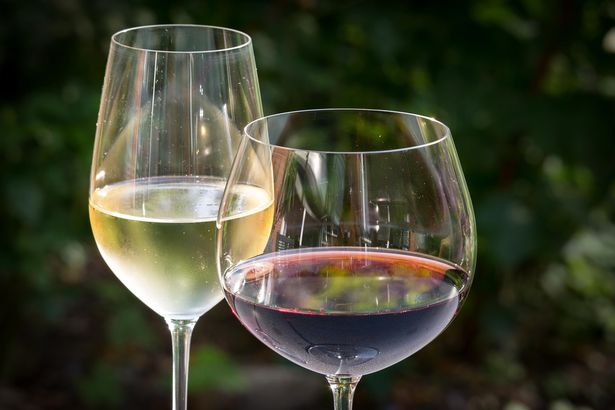What to Expect When You Quit Alcohol for Dry January - OK! Magazine

With the festive season's indulgence behind us, it's no surprise that many are considering embracing Dry January. Launched by Alcohol Change UK in 2013, Dry January is pretty straightforward - you skip alcohol for the entire month. You're probably already imagining how much more vibrant and energetic you'll feel by ditching the booze and you're not wrong to expect a host of health benefits that can touch on almost every part of your life.
Health gurus have weighed in on what positive changes you might observe if you decide to go alcohol-free, reports the Liverpool Echo. One major perk? You could see weight loss without the need to diet. Nuffield Health's clinic manager Nathan Penman explains: 'Alcoholic drinks contain a lot of calories, which don't contain nutritional value, and aren't necessarily used by our bodies.'
He adds: 'For example, if someone were to drink six glasses (175ml) of wine weekly (which is in line with the recommended amount of 14 units), this would equate to about 800 calories.
'Cutting this out is reducing a substantial amount of your weekly calorie intake, which will make it easier to achieve a calorie deficit over time and, therefore, weight loss.'
But it's not all smooth sailing. Dietitian Lola Biggs from natural health supplement company Together Health warns: 'Initial rises in anxiety and restlessness can often be experienced when you take a break from drinking.
'This is due to the body adjusting to its removal and trying to rebalance brain chemicals, in particular dopamine, a hormone which is involved in feeling reassured. This is happening while your body is also adapting to new habits, or in other words, the lack of a key habit that nightly glass of red.'
Lola said: 'Sleep can also change, as you begin to fall into deeper sleep, even if it takes longer to drift off without the wind-down wine. With this deeper sleep, more vivid dreams become a little more likely, as there is up to a three-times-increase in REM sleep associated with quitting alcohol.'
She said: 'When we stop drinking, changes can take place in our behaviour which can influence our food cravings. Often people notice they start craving sweeter things, even if they do not consider themselves to have a 'sweet tooth' normally.
'Keep meals protein-rich and varied to increase food satisfaction, and over time your microbes will tend to re-align and adapt to the new no-alcohol situ and you should feel less bound by food cravings.'
He said: 'Over time, these damaged skin cells can result in a cracked, dry and damaged appearance, with the potential for more breakouts,' he adds.
'By reducing your alcohol intake, you're giving the skin time to rehydrate and regenerate, allowing for a healthier glow.'
Nathan explained: 'Drinking a lot of alcohol can affect the muscles in your blood vessels. This can cause them to become narrower. When your blood vessels are narrower, the heart has to work harder to push blood around your body, increasing your blood pressure. Lower blood pressure will also greatly reduce the risk of developing heart disease, making it less likely a person will experience a heart attack or stroke.'
Alcohol initially can pep up hormones linked with sex drive, such as serotonin, dopamine and testosterone, shares Penman. But down the line, too much booze could plummet these levels, tanking your libido.
He said: 'However, over time these levels will start to reduce, which in turn lowers the amount of sexual drive a person will experience and could potentially lead to incidences of depression or anxiety.'
Yet, there's light at the end of the tunnel, as our bodies have fantastic healing powers. Penman notes: 'The good news is our bodies are amazing healers and after a period of a few weeks without alcohol, the body will naturally start to increase levels of these hormones again.'
Lola reflected on the mindfulness that comes with ditching alcohol: 'You might notice yourself counting days more, being more in tune with the date, and more observant of your bedtimes, as the body starts to get used to no alcohol in the system, and this shift heightens awareness.'
She explains that everyone's journey to sobriety is different, but research indicates that the first challenging symptoms begin to wane after about a week to ten days, leading to a boost in energy, mental clarity, and mood stability.
She further commented: 'Within a month, the body has often worked through the restoring process and the chemical effects of regular alcohol have reset. This can give you more motivation to continue to bypass a beverage, and stay committed to your aim.'




